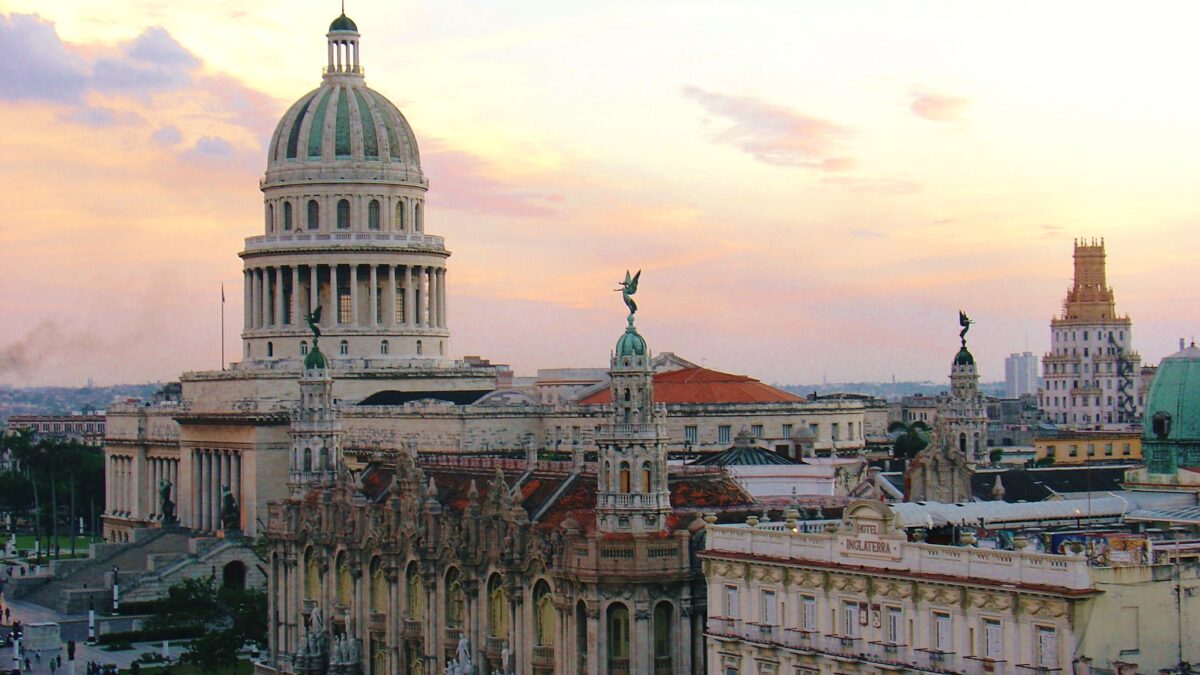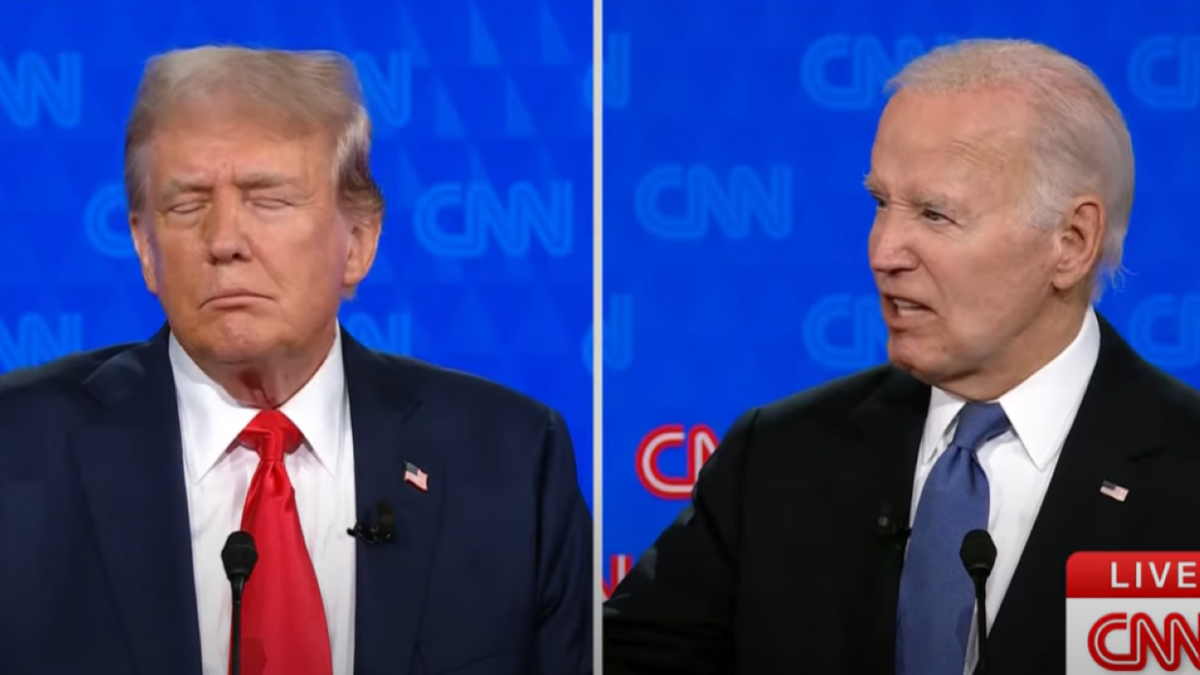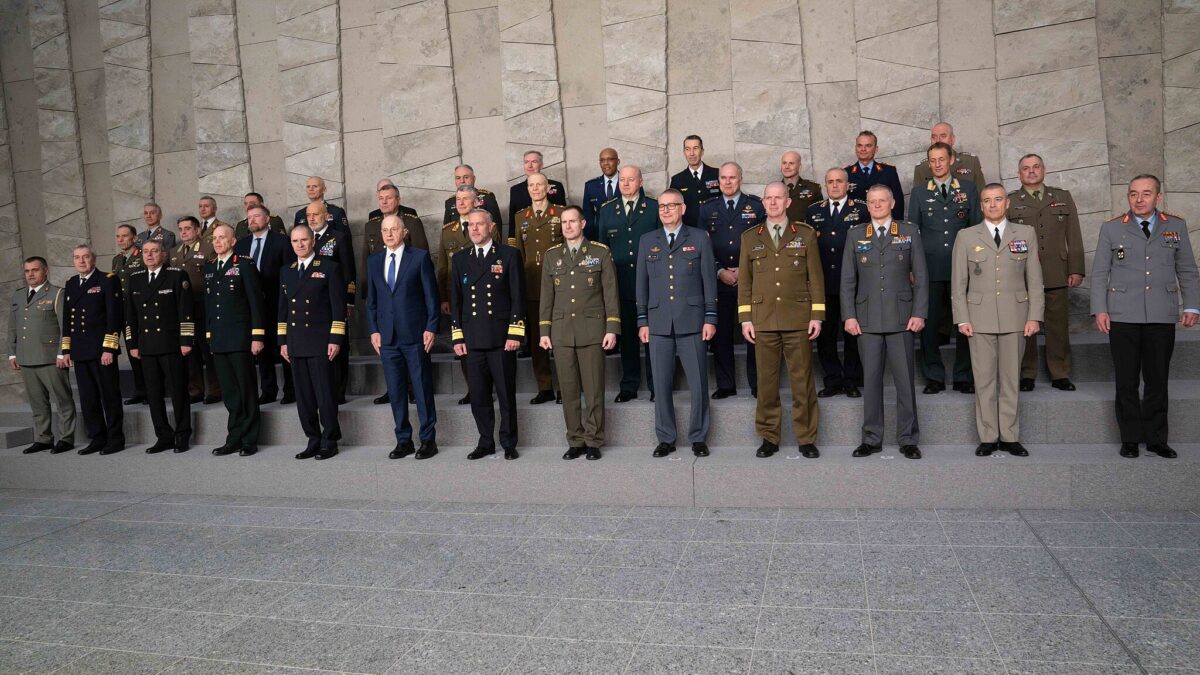
The idea of American exceptionalism has fallen on hard times. The reason, of course, was the extravagant claims President Bush made about spreading democracy and ending tyranny in the world, combined with our failure to succeed in “nation building” or “democracy building” in Iran and Afghanistan. American exceptionalism had soared with the universalistic, ideological confidence about our mission on behalf of freedom in the 1980s shaped President Reagan’s rhetoric and deeds, and it seem that our mission was largely completed with the fall of Communism, when Mr. Gorbachev simply caved and the German people tore down that wall. But our more recent experience seems to be that pride ends up doing more harm than good.
So the various critics of American exceptionalism around today are repulsed by the idolatry that identifies American expansionism with the will of God. It privileges, in effect, the gods of war over the merchants of peace. And some virtuous conservatives, such as Patrick Deneen and Patrick Buchanan, have reminded us that the original view of American exceptionalism was connected with isolationism; our republicanism can only be corrupted by foreign entanglements and especially by imperialistic pretensions. George McGovern’s much-maligned but actually quite compelling “Come home, America” had become the slogan of both our Democratic left and increasingly libertarian right. Come home, America, really means “let’s concentrate our efforts on making our country a fit home for free and dignified men and women.” For the Left, that means spending money on “nation building” programs that improve the lives of our fellow citizens, the members of our national community. For the libertarian right, it means downsizing government to the point where families and communities can flourish once again, undisturbed by ambitious political leaders and their projects.
From President Obama’s cosmopolitan and somewhat relativist perspective, the idea of American exceptionalism seems somewhat factual but mainly chauvinistic. Every nation thinks it is exceptional or richly deserves citizens’ loyalty. And every nation is exceptional in some ways, and those ways, objectively, make it better and worse than other nations. Our president believed our health care system, without drastic reform, was inferior to that found in most European nations, and we can’t take pride in our enduring legacy of racism. Overall, the president thought it would be better if America became more than a bit more chastened and more willing to not lead or impose its will on the rest of the world.
Technocrat-Enabled Exceptionalism
But in his recent speech announcing that the American goal is to destroy the Islamic State (ISIL), President Obama dramatically revived the idea of American exceptionalism and the singular global responsibilities it imposes on our country:
Abroad, American leadership is the one constant in an uncertain world. It is America that has the capacity and the will to mobilize the world against terrorists. It is America that has rallied the world against Russian aggression, and in support of the Ukrainian peoples’ right to determine their own destiny. It is America –- our scientists, our doctors, our know-how –- that can help contain and cure the outbreak of Ebola. It is America that helped remove and destroy Syria’s declared chemical weapons so that they can’t pose a threat to the Syrian people or the world again. And it is America that is helping Muslim communities around the world not just in the fight against terrorism, but in the fight for opportunity, and tolerance, and a more hopeful future.
America, our endless blessings bestow an enduring burden. But as Americans, we welcome our responsibility to lead. From Europe to Asia, from the far reaches of Africa to war-torn capitals of the Middle East, we stand for freedom, for justice, for dignity. These are values that have guided our nation since its founding.
Our president, to say the least, narrowed the distance between his vision of American leadership and that of the (allegedly) “neoconservative” President Bush. American has “the capacity and the will to mobilize” on behalf of self-determination and for “opportunity, and tolerance, and a more hopeful future” on every continent. Our “endless blessings bestow an enduring burden” of “our responsibility to lead.” And that means standing everywhere for our founding “values.” They’re not just our values, after all; we’re given the responsibility of making them everyone’s values. The president’s statement of what our values are—freedom, justice, dignity”—is certainly a lot more spirited and specific than some limp reference to human rights, and us shouldering the burden of the willful techno-capability to assert our values is the foundation for a more hopeful future for the whole world.
Learning on the Job
President Obama has been criticized severely and correctly by Angelo Codevilla and others for not, at this point, choosing means commensurate with his end of destruction. Someone might respond that if the end is clear and legitimate, then we may have the will and capability to adjust the means over time. Other critics, such as David Frum, are strong in asserting that the case for destruction was not, in fact, made, mainly in terms of American national interests. That might be because the threat of ISIL to our country is exaggerated or doesn’t really exist at all.
Others, somewhat unfairly, think the president is simply responding to a change in public opinion. Public support for intervention to degrade or destroy ISIL is now overwhelming, and confidence in our command-in-chief’s willful capability to respond to the challenge has virtually disappeared. He needed to do something to get his ratings better to bolster his domestic agenda and Democrats’ hope to hold the Senate. The truth seems to be that the president has been slowly and reluctantly adjusting himself to the facts on the ground that return us to war. He seems to have thought that saying no ground forces was politically expedient, and there’s evidence he’s resisting such deployment against the advice of our military commanders. Still, he perhaps pointedly didn’t say no ground troops in Kurdistan, and it easy to see that, soon enough, special operations forces will be distinguished from ground forces.
Saying no ground forces, among other things, is a way of trying to avoid asking for a Declaration of War or some comparable Congressional authorization. Arguably, such authorization would be put the president on firmer constitutional ground and win him needed support. But it’s easy to see why the president wants to avoid a national debate about the the end or the means he has chosen right now. The truth might be that if he succeeds quickly in his mission of destruction, or at least degradation, he won’t have any significant constitutional critics. If the mission fails or languishes, congressional support will wither away and the Constitution will return with a vengeance.
It’s the job of Congress to assert its constitutional war powers against the president’s decision to ignore or slight them. Ambition, as Federalist 51 says, should counteract ambition. For now, legislators’ thought seems to be that it’s too risky to either own or repudiate this mission of destruction. Presidential tyranny, if tyranny it is, is in congressional self-interest, at least at the moment.
The experience of President Bush, our president might see, is highly relevant here. This intervention is probably less optional than was the Iraq War, and probably more risky. Everyone knows now that overthrowing Iraq’s tyrant was badly thought through and even worse in attending to the facts on the ground; it’s more obvious at the beginning that the same is true this time. The hope is that Obama, much faster than Bush, overcomes his cluelessness by learning through doing (in this respect, we can hope he really does follow his “role model,” Abraham Lincoln). Either the president will adjust the means to his end, or he will reduce his end to what can be accomplished by the means he is willing and able to employ.
Sidestepping Hate Crimes Against Christians
My toughest criticism of our president currently might be that he has not highlighted the main reason for public’s change of opinion on this intervention. Peggy Noonan has reminded us of the popular uprising against the president’s scheme to intervene through bombing on behalf of the rebels in Syria. Reasons included fear of repeating the failures in Iraq and Afghanistan, the thought that this president (like the last president) doesn’t know what he doing, and what’s going on in Syria has nothing to do with our vital national interests. But the absence of support from conservative Christian groups generally on board with American involvement in the Middle East was especially conspicuous. That was largely because they knew Christians in Syria could have worse fates than being at the mercy of the murderous Assad, just as Christians in Iraq have been much worse off since the overthrow of Saddam Hussein.
The enthusiastic support by Christian groups for destroying ISIL flows, of course, from the overwhelming evidence that ISIL intends to kill all the Christians in the areas it controls. Well, nothing could be worse than that. Intervention will surely have unintended consequences and lead to the death of a large number of innocents. But that’s not as bad as everyone being extinguished. This cruel and murderous religious fanaticism is not exactly “genocide.” But it’s as much as the Holocaust about an obliteration of a whole “faith community” that’s been around for well over a thousand years. (It is, of course, not comparable to the Holocaust in other respects.)
The president is rightly criticized for not calling attention to the religious motivation of the not only cruel and murderous but also extinctionist mission of these “terrorists.” It’s truthful to say their mission is not characteristic of Islam as such, and that the history of Islam has not been mainly about ridding of the world of Christians and Jews. But the commander-in-chief does his supporters a disservice by ignoring the facts on the ground. Of course we’re not going to war against Islam; we can’t win this war, in fact, without some Islamic support.
Christians in the Middle East face increasing hostility everywhere. They have no support and are offered no haven from any government in the region (with the welcome exception of the de facto state of Kurdistan and, ambiguously, Egypt, for the moment). They are stateless and powerless, and it is surely the exceptional mission of the United States to look out for then whenever we can. It’s true we can’t and shouldn’t do that much at the moment, but we do have to stand up against extinction.
Some homeless Iraqis are saying they have no intention of returning to their homes, even if ISIL is defeated or pushed back. There’s nothing left for them. If it really is true that Christians and Christianity are finished in Iraq and Syria no matter what we do at this point, then our mission of destruction loses a good deal of its moral force. And the case for confining our efforts to containing ISIL with the main intention of defending our stalwart friends the Kurds grows. That end, after all, would be much more compatible with the means the president has chosen so far. Whatever we do in the Middle East, we should open our country unreservedly as a home for displaced Christians and Jews.
As for the Israel Question
What about Israel? Christians do, in fact, worship in peace in Israel. But Christians throughout the Arab world don’t have the option of moving there. Israel, understandably, isn’t going into battle on their behalf, and Israel’s own interventions in Lebanon and elsewhere haven’t been with Christians’ well-being in mind.
I agree with those who say that much the same people who want to get rid of all the Jews want to get rid of all the Christians in the Middle East right now. That fact is much more true than it used to be, and all animosity between Christians and Jews in the region and world should fade before that fact. It’s also true that President Obama is somewhat tone-deaf to the “existential threat” Israel faces for much the same reason he’s somewhat tone-deaf to the same threat faced by Christians in the region. That doesn’t mean Sen. Ted Cruz made a much sense by suggesting we should impose the litmus test of support of Israel on Arab Christians, ignoring the challenges they face in their extreme vulnerability, as well as their historical experiences and loyalties. We Americans should rise above the understandable tensions or worse that exist even between Christians and Jews in the Middle East in our relatively detached resolve to defend them both.
The truth is that unwavering support for Israel’s self-determining right to exist is not necessarily in our national interests, as defined by “realist theory.” That point can be argued, as Ron Paul and Pat Buchanan do. It also really not clear that the determination to destroy ISIL furthers those interests, as Frum and many others point out. Our decision to defend Jews and Christians against extinctionism is certainly in our interests only if we are exceptionally interested in being about more than comfort and security.
It might seem exclusivist for America to be especially concerned with Jewish and Christian Biblical believers. Our concern—which President Obama honors in deeds if not in words—is rooted, at one level, in the demographic realities of our singularly religious, highly modern country. It’s in America, as Tocqueville remarks, that we see the conscious, statesmanlike recognition of the interdependence of the spirit of religion and the spirit of liberty. But it’s also rooted, I think, in the fact that, globally, the most persecuted minorities of the twentieth century were the Christians and the Jews, and both remain particularly vulnerable today. We still don’t have much evidence that the solution to “the religious problem” is the world simply getting beyond thinking in terms of faith-based—or, for that matter, political—categories.
Then there’s the truth that the particularly or exceptionally American understanding of religious liberty does depend, in some measure, on a Biblical insight. True religion isn’t civil religion; religion isn’t a matter of law. Every human person has been given a kind of moral, relational, and intellectual freedom that points in the direction of a religious community—an organized body of thought and action not subservient to the state. Not every American has to believe in the personal Creator of the Bible, of course. But I think the American devotion to liberty still includes protecting the “safe space” each of us has been given for relational or communal faith. (I certainly could go on and lecture our president on how he has slighted this true spirit of our Free Exercise Clause in some of his domestic decisions, but not today.)
Peter Lawler is Dana Professor of Government and former chair of the department of Government and International Studies at Berry College.









